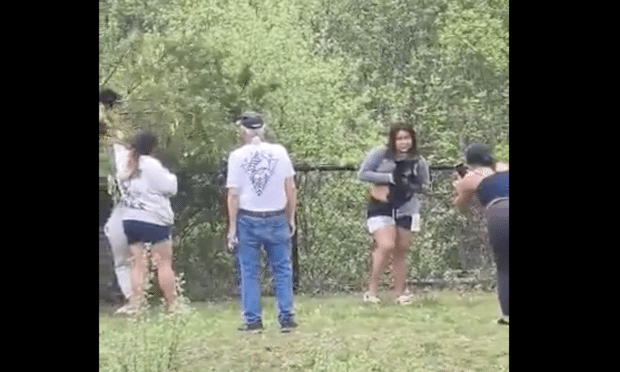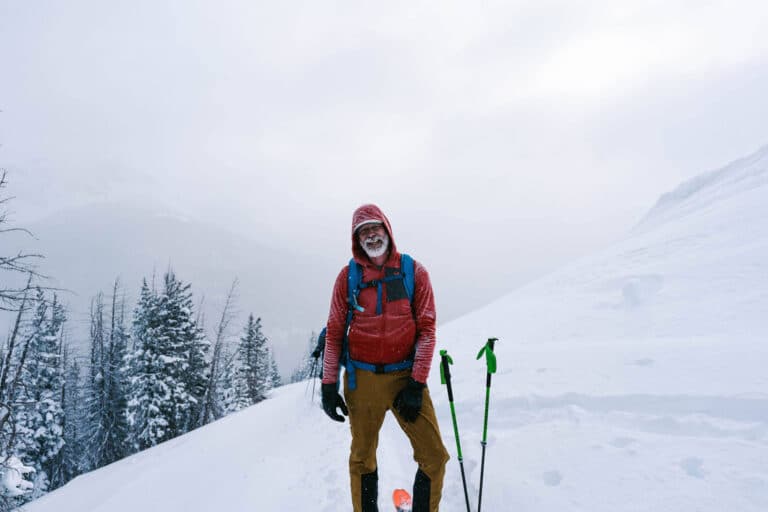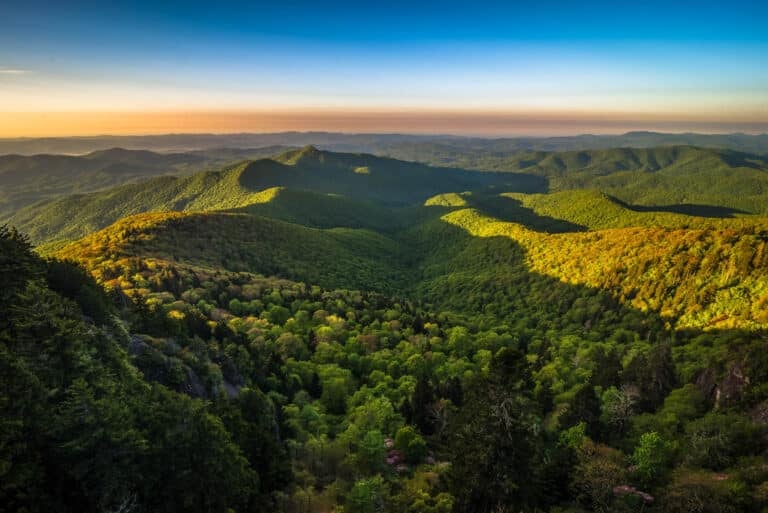Great Smoky Mountains National Park has proposed charging $4 per person per night to camp in the backcountry. Two seasoned Smokies hikers weigh in on the controversy.
YES
With more than nine million annual visitors, Great Smoky Mountains is the most visited national park in the country. Yet it is one of the only major national parks that does not charge an entrance fee.
Public lands, trails, and campsites cost money as do the people who spend careers facilitating their availability to the public and managing their user-generated impact. But much like admission, these privileges—not rights—have been free of charge in the Smokies for decades. New backcountry fees of only four dollars per night are a small price to pay to better regulate and manage impact on the park’s wilderness.
In comparison, popular national parks like Yellowstone, Yosemite, and Grand Canyon charge $25 per car just to enter. Grand Canyon charges $5 per person, per night, on top of a $10 reservation fee. We’ve got it pretty good in the Smokies, folks. Let’s stop acting so spoiled and quit taking it for granted.
New backcountry camping fees will provide funding to dramatically improve the Park’s backcountry reservation system.Current backcountry users know all too well the frustration of voice recordings and busy signals when attempting to obtain a permit. The current reservation system is also heavily abused—selfish backcountry users cheat the system by monopolizing extra free-of-charge reservations.
With more than 500,000 acres and 77,000 annual backcountry campers, these problems exist because resources in the Smokies are stretched thin. The country’s national parks are chronically underfunded and understaffed, and the Smokies are no exception. Forking over four dollars a night is how to do your part to make the park better.
The new backcountry fees will also fund additional staff for backcountry patrol. Unlike many of our national forests, a pristine backcountry experience exists in the Smokies because the Park’s management concentrates and regulates user impact. But managing that impact isn’t free. Smokies campsites even boast metal fire rings, bear cables, and piped springs. Often you can avoid popping a squat thanks to the convenience of a privy. Most users would pay $4 per visit for that luxury alone.
The proposed fee-based system isn’t perfect: a modified reservation system for A.T. thru-hikers, waiving fees for young children, and availability of an annual pass for frequent visitors are needed changes. But the new fees are a big step in the right direction toward preserving the serene Smokies backcountry experience as we know it.
Peter Barr has hiked all 900 miles of trails in Great Smoky Mountains National Park.
No
Growing up on the edge of Great Smoky Mountains National Park, I became accustomed to expressions of bitterness directed at the Park. They were understandable, because folks lost their lands, access to graves of their loved ones, and were shabbily treated in forced removal from their highland homelands. Yet for decades, while sympathetic, I dismissed this angst as lingering paranoia and deep-seated distrust of big government in general.
I have changed my mind and to a considerable degree come around to the way of thinking of many old-timers. This resulted from heavy-handed actions, cloaked in a sordid mantle of deceit, connected with Park Superintendent Dale Ditmanson’s proposal to charge fees for backcountry camping. From the outset it has been an onerous bureaucratic boondoggle, a money-grubbing solution in search of a problem.
From the outset, fees were predicated on a demonstrably false premise. The Park claimed backcountry overcrowding, but their own statistics proved (with the noteworthy exception of Appalachian Trail shelters) backcountry usage peaked decades ago and has subsequently dropped 20 percent. Most sites are underutilized.
Park officials regularly alluded to incessant complaints about campsites and campers.Yet an FOIA request revealed that the last three years produced a total of 15 backcountry-related complaints. Most of those had nothing to do with campsites.
Two open houses and a 30-day comment period were offered. They were a sham. No notes were taken and apparently no effort was made to record the thoughts of attendees. Clearly the open houses were held to meet policy requirements. Failure to record them rendered public opinions meaningless.
Superintendent Ditmanson summarily dismissed an online petition by misrepresenting its key statement when he reported to his superiors. Through parsing, he summarily silenced the voices of 522 people.
Another FOIA request revealed that by a ratio of 19 to 1 comments opposed the fees. Ditmanson cavalierly ignored these comments as well.
The pattern is clear. Ditmanson fostered an unneeded, unwanted fee despite widespread opposition. In so doing, he abrogated a system which has worked well for three-quarters of a century. The fee comes in hard economic times and has the greatest impact on those least able to afford it: local residents, backpacking families, scouts, and some of the Park’s staunchest allies. It is a sorry saga. Mountain folks consider integrity a key measure of a man. That quality is shamefully lacking here.
Jim Casada grew up in Bryson City, N.C. and has spent much of his life exploring and writing about the Smokies.








